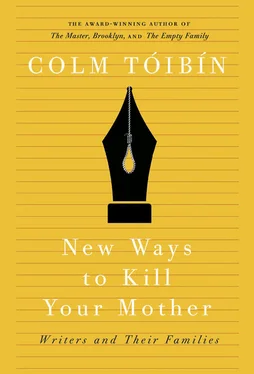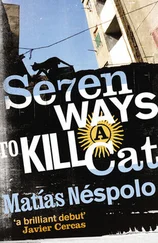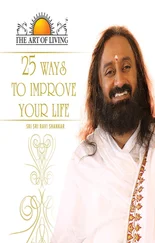Later, Synge wrote: ‘Soon after I relinquished the Kingdom of God I began to take a real interest in the Kingdom of Ireland. My patriotism went round from a vigorous and unreasoning loyalty to a temperate nationalism and everything Irish became sacred.’ This was a piece of easy subsequent self-positioning, however, and it is unlikely that a shift in faith as swift and facile as he suggests actually took place. It is much more likely that his religious faith, if replaced by anything, was replaced by an interest in music. As well as attending Trinity, he attended the Academy of Music in Westland Row where he studied the violin, becoming one of the many Irish playwrights whose first love was music. His mother was impressed by his musical ability. A month before his seventeenth birthday, she wrote: ‘Johnnie’s ear is wonderfully good now, he hears if the piano is at all out of tune… [He] and I play together sometimes… He is greatly improved in time; at first he never kept with me and still runs away when he ought to rest, so I have to try and watch him as well as play my own part. We played some nice slow melodies last night, and it sounded wonderfully nice.’
In these letters, written to her son Robert who was in Argentina, she compared her two youngest sons. ‘Johnnie certainly is the literary man of the family. I never saw such a love of reading as he has — he would spend any amount of money on books if he had it… I think Johnnie takes after my father.’ Sam, on the other hand, ‘can’t help being slow. He is very like his dear father in that as well as other things.’ Sam followed his mother in religion ‘and his virtues make him a comfort to me’. Yet John, who his mother believed had ‘a good opinion of himself’, which she thought a pity, impressed her in ways that might have mattered to her more and that she could not take for granted. Mother and son did not fall out over his lack of religion and he was included in all family events and outings, the silent, stubborn dissenter at the table. Nonetheless, she lamented his state of ungrace year after year, in letter after letter; she was the only keener of the eastern seaboard. ‘Oh! My dear Johnnie is a great sorrow to my heart,’ she wrote in 1896 when he was twenty-five,
his belief or mis-belief has no joy in it and his residence abroad has been no help to him — he is wonderfully separate from us. I show him all the love I can. I pity him so much and love him so deeply — and I believe God is hearing my cry to Him, but the answer is delayed long. If we are all taken up to meet the Lord and he is left behind — how sad a thought but I won’t think that — God can do all things — so I say to my doubts ‘be gone’…
Synge’s Aunt Jane, who lived in the extended household, had often dandled the young Parnell on her knee when they were neighbours in Wicklow; she now ‘piously wished she had choked him in infancy’, as W. J. McCormack put it in his biography of Synge, Fool of the Family . The Synges were staunch defenders of the union and it is not hard to imagine their horror at the growing involvement of Synge in cultural nationalism. While his mother disapproved of his interest in archaeology, she did not object to his studying Irish at Trinity College. He took Irish with Hebrew, and these were seen as part of the Divinity course, Irish being useful to those who wished to convert the native speakers of the West of Ireland to the reformed faith. His Aunt Jane remembered how her brother Alexander, who had ministered on the Aran Islands, had also learned Irish. Like Lady Gregory, who began to study Irish in these years, Synge and his fellow students used an Irish translation of the Bible to help them. As for Lady Gregory too, some magic came to Synge from the language he was learning, or some set of emotions that were part of that decade. Both he and Lady Gregory, in the same years and through the same influences, gradually began to love Ireland, as though Ireland were a person. They loved its landscape and its ancient culture; they loved the ordinary people they met in cabins or on the roads. It was as if their own dying power in Ireland, the faded glory of their class, gave their emotions about Ireland a strange glow of intensity. They were both slow to turn this new emotion into politics. As Nicholas Grene has pointed out, ‘Synge canvassed for an Anti-Home Rule Petition in 1893 and as late as 1895 was of the view that Home Rule would provoke sectarian conflict.’ So too in 1893, Lady Gregory published anonymously a pamphlet called Home Ruin , essentially a piece of pro-unionist rhetoric. In time, however, they both realized that their project, if not political, was bound up with politics. Synge would later write: ‘Patriotism gratifies man’s need for adoration and has, therefore, a peculiar power upon the imaginative sceptic.’ And also: ‘The Irish country rains, mists, pale insular skies, the old churches, manuscripts, jewels, everything in fact that was Irish had a charm neither human nor divine, rather perhaps as if I had fallen in love with a goddess.’
The goddess came in many guises; flirting with her in these years between the fall of Parnell and independence forced Lady Gregory and Synge and others to deal in vast ambiguities, to turn a blind eye to the irony of their own position. Lady Gregory collected her rents at Coole from the same people from whom she collected folklore and with some of the same zeal. When they did not pay, she threatened them. W. J. McCormack writes in his biography:
As early as 1885, Synge’s brother had been active as an agent, and in 1887 his services had been employed to dispossess tenants on the Glanmore estate in County Wicklow in an incident reported in the Freeman’s Journal . According to the dramatist’s nephew, ‘when Synge argued with his mother over the rights of tenants and the injustice of evicting them, her answer was “What would become of us if our tenants in Galway stopped paying their rents?”’
When Synge was twenty-one his mother altered her summer routine, exchanging Delgany for the interior of County Wicklow. The fact that the house she rented was boycotted did not seem to bother her, nor did it prevent Synge from going with her. He read Diarmuid and Gráinne that summer and began to explore Wicklow with enormous enthusiasm. But, according to Edward Stephens, ‘they were not allowed to forget that they were staying in a boycotted house. In the evenings sometimes two constables came up the avenue and walked around the outbuildings to see that all was well.’ In 1895 when that house was not available, they rented Duff House on Lough Dan, but, as Stephens wrote, ‘it was with some misgivings… for as the house was owned by Roman Catholics, she feared it would not be free from fleas’.
Synge’s writings about Wicklow, eight articles in all, represent in W. J. McCormack’s phrase ‘a psychopathology of County Wicklow’. He loved the idea of tramps and vagrants and saw his own class as doomed. ‘In this garden,’ he wrote,
one seemed to feel the tragedy of the landlord class… and of the innumerable old families that are quickly dwindling away… The broken green-houses and mouse-eaten libraries, that were designed and collected by men who voted with Grattan, are perhaps as mournful in the end as the four mud walls that are so often left in Wicklow as the only remnants of a farmhouse… Many of the descendants of these people have, of course, drifted into professional life in Dublin, or have gone abroad; yet, wherever they are, they do not equal their forefathers.
In one of the essays, as Nicholas Grene has discovered, he wrote and then omitted ‘his most telling condemnation of his own class’: ‘Still, this class, with its many genuine qualities, had little patriotism, in the right sense, few ideas, and no seed for future life, so it has gone to the wall.’ Synge wondered what use such a decaying class could be to a playwright: ‘If a playwright chose to go through the Irish country houses he would find material, it is likely, for many gloomy plays that would turn on the dying away of the old families, and on the lives of the one or two delicate girls that are left so often to represent a dozen hearty men who were alive a generation or two ago.’
Читать дальше












